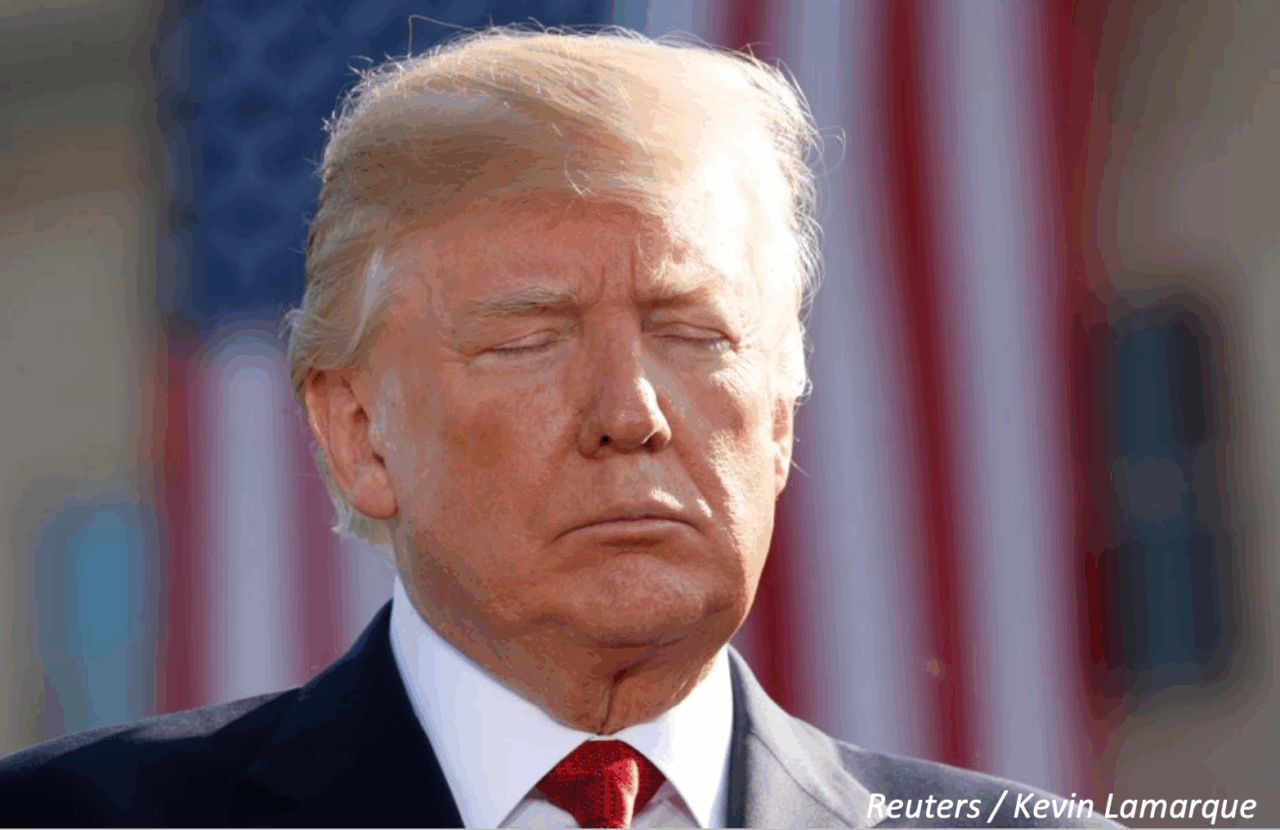Poll: Constitutional Crisis
This Navigator Research report covers the latest perceptions of President Trump’s actions when it comes to following the Constitution and acting like he is above the law.
In recent weeks, Donald Trump has hinted that he might take a Sharpie to portions of the Constitution, all but daring the Courts and Congress to stand in his way. Our latest survey finds that a majority of Americans believe that Trump thinks he is above the law.
Above the Law?
Nearly two-thirds (63 percent) of Americans say that Donald Trump believes he is above the law, including majorities of independents (65 percent) and non-MAGA Republicans (51 percent). This is nearly identical to the share who said the same following Trump’s first impeachment inquiry in 2019, when 62 percent of Americans said Trump believes he is above the law.
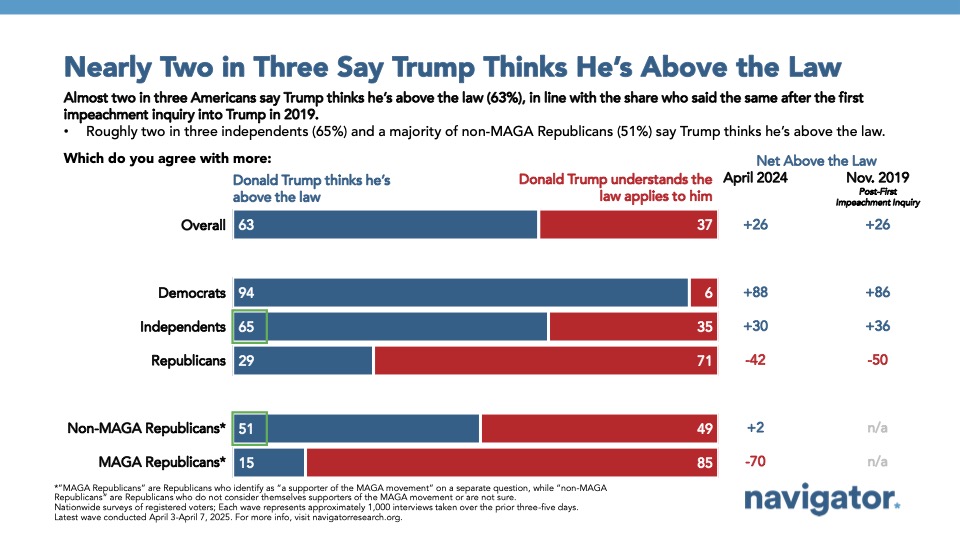
Concerns about Trump
Driving their concerns: that Trump let Elon Musk and DOGE access the personal health and financial data of tens of millions of Americans, that Trump has violated multiple court rulings, and that Trump is attempting to close federal departments and agencies. Two-thirds find each of these concerning, including majorities of both Democrats and independents.
- Trump let Elon Musk and DOGE access the personal health and financial data of tens of millions of Americans: 66 percent concerning, 53 percent “very” concerning,
- Trump has violated multiple court rulings: 65 percent concerning, 51 percent “very” concerning, and;
- Trump is attempting to close federal departments and agencies like the Department of Education, even though those departments and agencies can only be shut down by acts of Congress: 64 percent concerning, 51 percent “very” concerning.
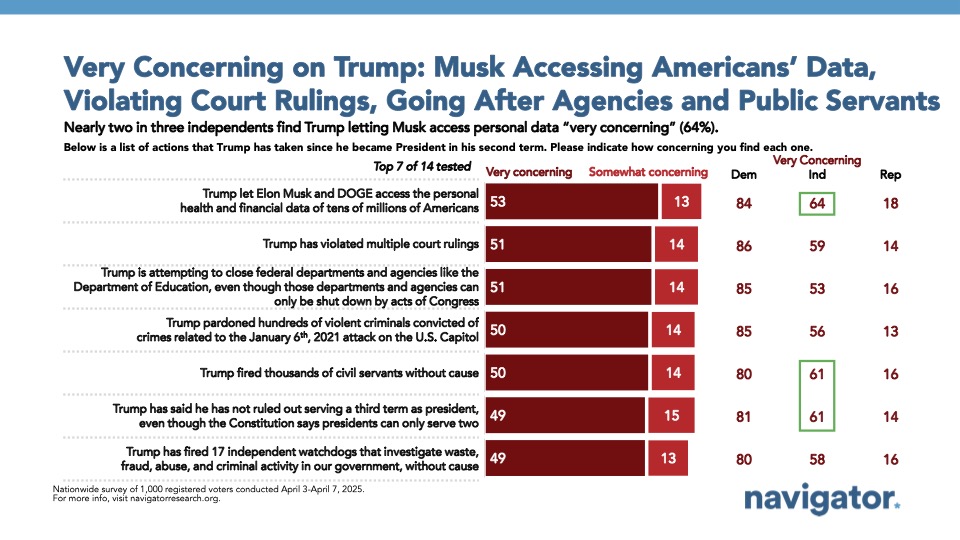
Democracy under pressure
Americans also see Trump’s actions as posing a threat to democracy. When asked which actions are a threat to democracy, Americans are most worried about Trump’s designs on a third term, Elon Musk’s access to personal data, Trump’s violation of court orders, and the closing of federal agencies.
Nearly 60 percent say each of these poses a threat to democracy, with almost half saying these actions pose a severe threat to democracy.
- Trump has said he has not ruled out serving a third term as president, even though the Constitution says presidents can only serve two terms: 60 percent threat to democracy, 48 percent “severe” threat,
- Trump let Elon Musk and DOGE access the personal health and financial data of tens of millions of Americans: 60 percent threat, 48 percent “severe” threat,
- Trump has violated multiple court rulings: 57 percent threat, 47 percent “severe” threat, and,
- Trump is attempting to close federal departments and agencies like the Department of Education, even though those departments and agencies can only be shut down by acts of Congress: 57 percent threat, 46 percent “severe” threat.
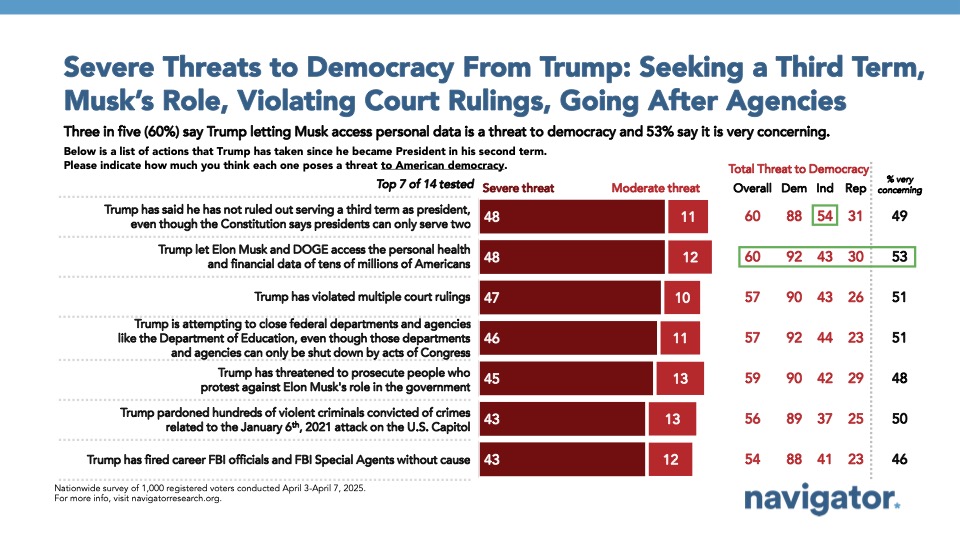
While people use a few different phrases, the common theme in describing Trump is putting him in opposition to the law and the Constitution, not norms and promises.
Americans are mixed on exactly how to best describe the early days of the second Trump administration. A third say he is “abusing his power,” “violating the constitution,” and “acting like he is above the law.” Even among Republicans who do not identify as MAGA, a quarter (25 percent) say Trump is abusing his power, and another quarter (23 percent) say Trump is acting like he is above the law.
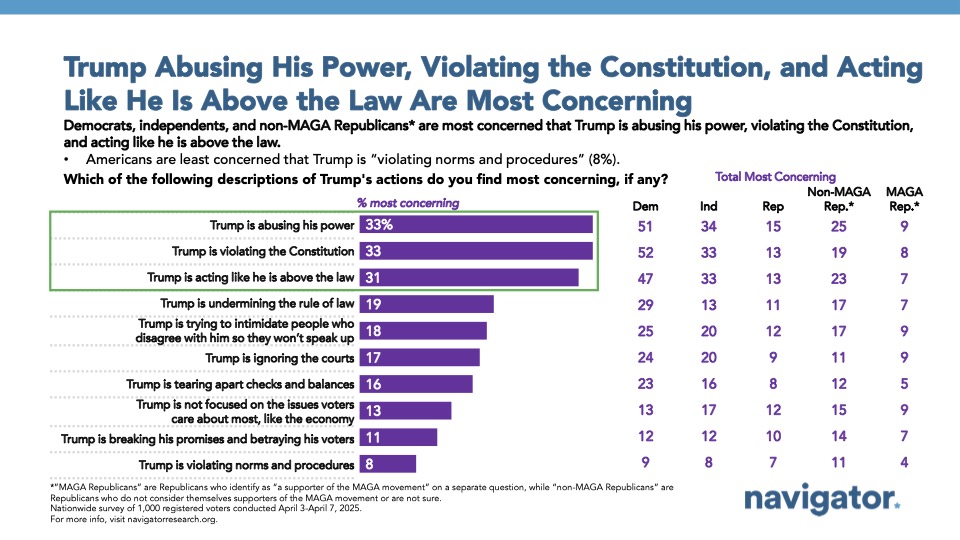
About The Study
Global Strategy Group conducted a public opinion survey among a sample of 1,000 registered voters from April 3-April 7, 2025. 100 additional interviews were conducted among Hispanic voters. 75 additional interviews were conducted among Asian American and Pacific Islander voters. 100 additional interviews were conducted among African American voters. 100 additional interviews were conducted among independent voters. The survey was conducted online, recruiting respondents from an opt-in online panel vendor. Respondents were verified against a voter file and special care was taken to ensure the demographic composition of our sample matched that of the national registered voter population across a variety of demographic variables. The margin of error for the full sample at the 95 percent level of confidence is +/- 3.1 percentage points. The margin of error for subgroups varies and is higher.

